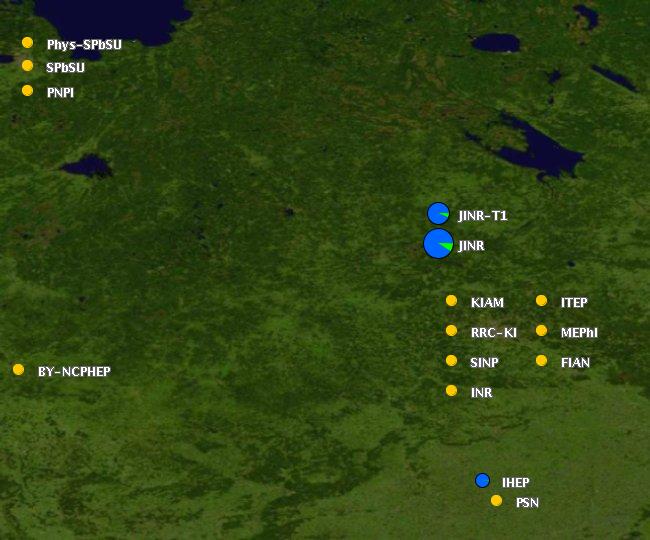To provide full-scale participation of Russia in realization of EGEE and WLCG projects, in 2003 the RDIG consortium (Russian GRID for intensive operations with the data, Russian Data Intensive GRID, RDIG) has been formed.

The interface of the system consists of several modules. Users have a possibility to begin the work with system directly from the module in which they are interested, or from the main page on which the general reports allowing to define the state of service and possible sources of problems are presented.
The memorandum of consortium creation has been signed by heads of eight large institutes:
- Institute of high-energy physics (Protvino),
- Institute of mathematical problems of biology (Pushino),
- Institute of theoretical and experimental physics (Moscow),
- Joint institute for nuclear researches (Dubna),
- Institute of applied mathematics of M.V.Keldysh (Moscow),
- scientific research institute of nuclear physics of the Moscow State University (Moscow),
- the Petersburg institute of nuclear physics (St.-Petersburg)
- RCC «Kurchatov’s institute» (Moscow)
- the Geophysical center of the Russian Academy of Sciences (Moscow)
RDIG consortium was included into EGEE structure as regional federation “Russia”, and during participation in EGEE and WLCG projects in Russia there has been created the operating grid-infrastructure that has demanded:
- escalating of computing resources and resources of data storage of the Russian segment of grid-environment;
- maintenance of a reliable network infrastructure;
- maintenance of work of base grid-services in the Russian segment;
- creation of the Regional operational center (Regional Operations Center – ROC);
- the help to the resource centers in middleware installation and support of its functioning;
- support of the grid users;
- participation in providing of resources for researches in important applied areas (in the field of biomedicine, thermonuclear synthesis, high-energy physics and cosmophysics);
- management of infrastructure functioning: registration of users, the regional virtual organizations and monitoring;
- popularization of technologies and involving of new users from scientific and industrial circles, and also training of users and managers.
As a result the Russian grid-segment has been successfully integrated into a global grid-infrastructure of EGEE/WLCG projects.